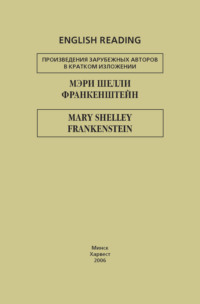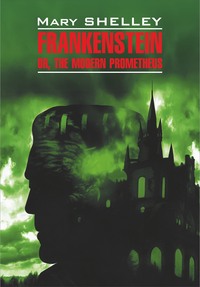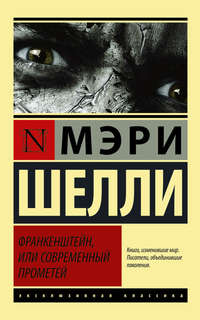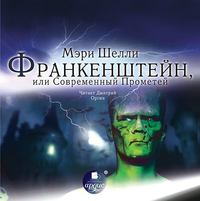 полная версия
полная версияNotes to the Complete Poetical Works of Percy Bysshe Shelley
'What I want you to do is to procure for me its presentation at Covent Garden. The principal character, Beatrice, is precisely fitted for Miss O'Neil, and it might even seem to have been written for her (God forbid that I should see her play it – it would tear my nerves to pieces); and in all respects it is fitted only for Covent Garden. The chief male character I confess I should be very unwilling that any one but Kean should play. That is impossible, and I must be contented with an inferior actor.'
The play was accordingly sent to Mr. Harris. He pronounced the subject to be so objectionable that he could not even submit the part to Miss O'Neil for perusal, but expressed his desire that the author would write a tragedy on some other subject, which he would gladly accept. Shelley printed a small edition at Leghorn, to ensure its correctness; as he was much annoyed by the many mistakes that crept into his text when distance prevented him from correcting the press.
Universal approbation soon stamped "The Cenci" as the best tragedy of modern times. Writing concerning it, Shelley said: 'I have been cautious to avoid the introducing faults of youthful composition; diffuseness, a profusion of inapplicable imagery, vagueness, generality, and, as Hamlet says, "words, words".' There is nothing that is not purely dramatic throughout; and the character of Beatrice, proceeding, from vehement struggle, to horror, to deadly resolution, and lastly to the elevated dignity of calm suffering, joined to passionate tenderness and pathos, is touched with hues so vivid and so beautiful that the poet seems to have read intimately the secrets of the noble heart imaged in the lovely countenance of the unfortunate girl. The Fifth Act is a masterpiece. It is the finest thing he ever wrote, and may claim proud comparison not only with any contemporary, but preceding, poet. The varying feelings of Beatrice are expressed with passionate, heart-reaching eloquence. Every character has a voice that echoes truth in its tones. It is curious, to one acquainted with the written story, to mark the success with which the poet has inwoven the real incidents of the tragedy into his scenes, and yet, through the power of poetry, has obliterated all that would otherwise have shown too harsh or too hideous in the picture. His success was a double triumph; and often after he was earnestly entreated to write again in a style that commanded popular favour, while it was not less instinct with truth and genius. But the bent of his mind went the other way; and, even when employed on subjects whose interest depended on character and incident, he would start off in another direction, and leave the delineations of human passion, which he could depict in so able a manner, for fantastic creations of his fancy, or the expression of those opinions and sentiments, with regard to human nature and its destiny, a desire to diffuse which was the master passion of his soul.
NOTE ON THE MASK OF ANARCHY, BY MRS. SHELLEY
Though Shelley's first eager desire to excite his countrymen to resist openly the oppressions existent during 'the good old times' had faded with early youth, still his warmest sympathies were for the people. He was a republican, and loved a democracy. He looked on all human beings as inheriting an equal right to possess the dearest privileges of our nature; the necessaries of life when fairly earned by labour, and intellectual instruction. His hatred of any despotism that looked upon the people as not to be consulted, or protected from want and ignorance, was intense. He was residing near Leghorn, at Villa Valsovano, writing "The Cenci", when the news of the Manchester Massacre reached us; it roused in him violent emotions of indignation and compassion. The great truth that the many, if accordant and resolute, could control the few, as was shown some years after, made him long to teach his injured countrymen how to resist. Inspired by these feelings, he wrote the "Mask of Anarchy", which he sent to his friend Leigh Hunt, to be inserted in the Examiner, of which he was then the Editor.
'I did not insert it,' Leigh Hunt writes in his valuable and interesting preface to this poem, when he printed it in 1832, 'because I thought that the public at large had not become sufficiently discerning to do justice to the sincerity and kind-heartedness of the spirit that walked in this flaming robe of verse.' Days of outrage have passed away, and with them the exasperation that would cause such an appeal to the many to be injurious. Without being aware of them, they at one time acted on his suggestions, and gained the day. But they rose when human life was respected by the Minister in power; such was not the case during the Administration which excited Shelley's abhorrence.
The poem was written for the people, and is therefore in a more popular tone than usual: portions strike as abrupt and unpolished, but many stanzas are all his own. I heard him repeat, and admired, those beginning before I knew to what poem they were to belong. But the most touching passage is that which describes the blessed effects of liberty; it might make a patriot of any man whose heart was not wholly closed against his humbler fellow-creatures.
'My Father Time is old and gray,'before I knew to what poem they were to belong. But the most touching passage is that which describes the blessed effects of liberty; it might make a patriot of any man whose heart was not wholly closed against his humbler fellow-creatures.
NOTE ON PETER BELL THE THIRD, BY MRS. SHELLEY
In this new edition I have added "Peter Bell the Third". A critique on Wordsworth's "Peter Bell" reached us at Leghorn, which amused Shelley exceedingly, and suggested this poem.
I need scarcely observe that nothing personal to the author of "Peter Bell" is intended in this poem. No man ever admired Wordsworth's poetry more; – he read it perpetually, and taught others to appreciate its beauties. This poem is, like all others written by Shelley, ideal. He conceived the idealism of a poet – a man of lofty and creative genius – quitting the glorious calling of discovering and announcing the beautiful and good, to support and propagate ignorant prejudices and pernicious errors; imparting to the unenlightened, not that ardour for truth and spirit of toleration which Shelley looked on as the sources of the moral improvement and happiness of mankind, but false and injurious opinions, that evil was good, and that ignorance and force were the best allies of purity and virtue. His idea was that a man gifted, even as transcendently as the author of "Peter Bell", with the highest qualities of genius, must, if he fostered such errors, be infected with dulness. This poem was written as a warning – not as a narration of the reality. He was unacquainted personally with Wordsworth, or with Coleridge (to whom he alludes in the fifth part of the poem), and therefore, I repeat, his poem is purely ideal; – it contains something of criticism on the compositions of those great poets, but nothing injurious to the men themselves.
No poem contains more of Shelley's peculiar views with regard to the errors into which many of the wisest have fallen, and the pernicious effects of certain opinions on society. Much of it is beautifully written: and, though, like the burlesque drama of "Swellfoot", it must be looked on as a plaything, it has so much merit and poetry – so much of HIMSELF in it – that it cannot fail to interest greatly, and by right belongs to the world for whose instruction and benefit it was written.
NOTE ON THE WITCH OF ATLAS, BY MRS. SHELLEYWe spent the summer of 1820 at the Baths of San Giuliano, four miles from Pisa. These baths were of great use to Shelley in soothing his nervous irritability. We made several excursions in the neighbourhood. The country around is fertile, and diversified and rendered picturesque by ranges of near hills and more distant mountains. The peasantry are a handsome intelligent race; and there was a gladsome sunny heaven spread over us, that rendered home and every scene we visited cheerful and bright. During some of the hottest days of August, Shelley made a solitary journey on foot to the summit of Monte San Pellegrino – a mountain of some height, on the top of which there is a chapel, the object, during certain days of the year, of many pilgrimages. The excursion delighted him while it lasted; though he exerted himself too much, and the effect was considerable lassitude and weakness on his return. During the expedition he conceived the idea, and wrote, in the three days immediately succeeding to his return, the "Witch of Atlas". This poem is peculiarly characteristic of his tastes – wildly fanciful, full of brilliant imagery, and discarding human interest and passion, to revel in the fantastic ideas that his imagination suggested.
The surpassing excellence of "The Cenci" had made me greatly desire that Shelley should increase his popularity by adopting subjects that would more suit the popular taste than a poem conceived in the abstract and dreamy spirit of the "Witch of Atlas". It was not only that I wished him to acquire popularity as redounding to his fame; but I believed that he would obtain a greater mastery over his own powers, and greater happiness in his mind, if public applause crowned his endeavours. The few stanzas that precede the poem were addressed to me on my representing these ideas to him. Even now I believe that I was in the right. Shelley did not expect sympathy and approbation from the public; but the want of it took away a portion of the ardour that ought to have sustained him while writing. He was thrown on his own resources, and on the inspiration of his own soul; and wrote because his mind overflowed, without the hope of being appreciated. I had not the most distant wish that he should truckle in opinion, or submit his lofty aspirations for the human race to the low ambition and pride of the many; but I felt sure that, if his poems were more addressed to the common feelings of men, his proper rank among the writers of the day would be acknowledged, and that popularity as a poet would enable his countrymen to do justice to his character and virtues, which in those days it was the mode to attack with the most flagitious calumnies and insulting abuse. That he felt these things deeply cannot be doubted, though he armed himself with the consciousness of acting from a lofty and heroic sense of right. The truth burst from his heart sometimes in solitude, and he would write a few unfinished verses that showed that he felt the sting; among such I find the following: —
'Alas! this is not what I thought Life was.I knew that there were crimes and evil men,Misery and hate; nor did I hope to passUntouched by suffering through the rugged glen.In mine own heart I saw as in a glassThe hearts of others…And, whenI went among my kind, with triple brassOf calm endurance my weak breast I armed,To bear scorn, fear, and hate – a woful mass!'I believed that all this morbid feeling would vanish if the chord of sympathy between him and his countrymen were touched. But my persuasions were vain, the mind could not be bent from its natural inclination. Shelley shrunk instinctively from portraying human passion, with its mixture of good and evil, of disappointment and disquiet. Such opened again the wounds of his own heart; and he loved to shelter himself rather in the airiest flights of fancy, forgetting love and hate, and regret and lost hope, in such imaginations as borrowed their hues from sunrise or sunset, from the yellow moonshine or paly twilight, from the aspect of the far ocean or the shadows of the woods, – which celebrated the singing of the winds among the pines, the flow of a murmuring stream, and the thousand harmonious sounds which Nature creates in her solitudes. These are the materials which form the "Witch of Atlas": it is a brilliant congregation of ideas such as his senses gathered, and his fancy coloured, during his rambles in the sunny land he so much loved.
NOTE ON THE WITCH OF ATLAS, BY MRS. SHELLEY
We spent the summer of 1820 at the Baths of San Giuliano, four miles from Pisa. These baths were of great use to Shelley in soothing his nervous irritability. We made several excursions in the neighbourhood. The country around is fertile, and diversified and rendered picturesque by ranges of near hills and more distant mountains. The peasantry are a handsome intelligent race; and there was a gladsome sunny heaven spread over us, that rendered home and every scene we visited cheerful and bright. During some of the hottest days of August, Shelley made a solitary journey on foot to the summit of Monte San Pellegrino – a mountain of some height, on the top of which there is a chapel, the object, during certain days of the year, of many pilgrimages. The excursion delighted him while it lasted; though he exerted himself too much, and the effect was considerable lassitude and weakness on his return. During the expedition he conceived the idea, and wrote, in the three days immediately succeeding to his return, the "Witch of Atlas". This poem is peculiarly characteristic of his tastes – wildly fanciful, full of brilliant imagery, and discarding human interest and passion, to revel in the fantastic ideas that his imagination suggested.
The surpassing excellence of "The Cenci" had made me greatly desire that Shelley should increase his popularity by adopting subjects that would more suit the popular taste than a poem conceived in the abstract and dreamy spirit of the "Witch of Atlas". It was not only that I wished him to acquire popularity as redounding to his fame; but I believed that he would obtain a greater mastery over his own powers, and greater happiness in his mind, if public applause crowned his endeavours. The few stanzas that precede the poem were addressed to me on my representing these ideas to him. Even now I believe that I was in the right. Shelley did not expect sympathy and approbation from the public; but the want of it took away a portion of the ardour that ought to have sustained him while writing. He was thrown on his own resources, and on the inspiration of his own soul; and wrote because his mind overflowed, without the hope of being appreciated. I had not the most distant wish that he should truckle in opinion, or submit his lofty aspirations for the human race to the low ambition and pride of the many; but I felt sure that, if his poems were more addressed to the common feelings of men, his proper rank among the writers of the day would be acknowledged, and that popularity as a poet would enable his countrymen to do justice to his character and virtues, which in those days it was the mode to attack with the most flagitious calumnies and insulting abuse. That he felt these things deeply cannot be doubted, though he armed himself with the consciousness of acting from a lofty and heroic sense of right. The truth burst from his heart sometimes in solitude, and he would write a few unfinished verses that showed that he felt the sting; among such I find the following: —
'Alas! this is not what I thought Life was.I knew that there were crimes and evil men,Misery and hate; nor did I hope to passUntouched by suffering through the rugged glen.In mine own heart I saw as in a glassThe hearts of others…And, whenI went among my kind, with triple brassOf calm endurance my weak breast I armed,To bear scorn, fear, and hate – a woful mass!'I believed that all this morbid feeling would vanish if the chord of sympathy between him and his countrymen were touched. But my persuasions were vain, the mind could not be bent from its natural inclination. Shelley shrunk instinctively from portraying human passion, with its mixture of good and evil, of disappointment and disquiet. Such opened again the wounds of his own heart; and he loved to shelter himself rather in the airiest flights of fancy, forgetting love and hate, and regret and lost hope, in such imaginations as borrowed their hues from sunrise or sunset, from the yellow moonshine or paly twilight, from the aspect of the far ocean or the shadows of the woods, – which celebrated the singing of the winds among the pines, the flow of a murmuring stream, and the thousand harmonious sounds which Nature creates in her solitudes. These are the materials which form the "Witch of Atlas": it is a brilliant congregation of ideas such as his senses gathered, and his fancy coloured, during his rambles in the sunny land he so much loved.
NOTE ON OEDIPUS TYRANNUS, BY MRS. SHELLEY
In the brief journal I kept in those days, I find recorded, in August, 1820, Shelley 'begins "Swellfoot the Tyrant", suggested by the pigs at the fair of San Giuliano.' This was the period of Queen Caroline's landing in England, and the struggles made by George IV to get rid of her claims; which failing, Lord Castlereagh placed the "Green Bag" on the table of the House of Commons, demanding in the King's name that an enquiry should be instituted into his wife's conduct. These circumstances were the theme of all conversation among the English. We were then at the Baths of San Giuliano. A friend came to visit us on the day when a fair was held in the square, beneath our windows: Shelley read to us his "Ode to Liberty"; and was riotously accompanied by the grunting of a quantity of pigs brought for sale to the fair. He compared it to the 'chorus of frogs' in the satiric drama of Aristophanes; and, it being an hour of merriment, and one ludicrous association suggesting another, he imagined a political-satirical drama on the circumstances of the day, to which the pigs would serve as chorus – and "Swellfoot" was begun. When finished, it was transmitted to England, printed, and published anonymously; but stifled at the very dawn of its existence by the Society for the Suppression of Vice, who threatened to prosecute it, if not immediately withdrawn. The friend who had taken the trouble of bringing it out, of course did not think it worth the annoyance and expense of a contest, and it was laid aside.
Hesitation of whether it would do honour to Shelley prevented my publishing it at first. But I cannot bring myself to keep back anything he ever wrote; for each word is fraught with the peculiar views and sentiments which he believed to be beneficial to the human race, and the bright light of poetry irradiates every thought. The world has a right to the entire compositions of such a man; for it does not live and thrive by the outworn lesson of the dullard or the hypocrite, but by the original free thoughts of men of genius, who aspire to pluck bright truth truth. Even those who may dissent from his opinions will consider that he was a man of genius, and that the world will take more interest in his slightest word than in the waters of Lethe which are so eagerly prescribed as medicinal for all its wrongs and woe. This drama, however, must not be judged for more than was meant. It is a mere plaything of the imagination; which even may not excite smiles among many, who will not see wit in those combinations of thought which were full of the ridiculous to the author. But, like everything he wrote, it breathes that deep sympathy for the sorrows of humanity, and indignation against its oppressors, which make it worthy of his name.
'from the pale-faced moon;Or dive into the bottom of the deepWhere fathom-line would never touch the ground,And pluck up drowned'truth. Even those who may dissent from his opinions will consider that he was a man of genius, and that the world will take more interest in his slightest word than in the waters of Lethe which are so eagerly prescribed as medicinal for all its wrongs and woe. This drama, however, must not be judged for more than was meant. It is a mere plaything of the imagination; which even may not excite smiles among many, who will not see wit in those combinations of thought which were full of the ridiculous to the author. But, like everything he wrote, it breathes that deep sympathy for the sorrows of humanity, and indignation against its oppressors, which make it worthy of his name.
NOTE ON HELLAS, BY MRS. SHELLEY
The South of Europe was in a state of great political excitement at the beginning of the year 1821. The Spanish Revolution had been a signal to Italy; secrete societies were formed; and, when Naples rose to declare the Constitution, the call was responded to from Brundusium to the foot of the Alps. To crush these attempts to obtain liberty, early in 1821 the Austrians poured their armies into the Peninsula: at first their coming rather seemed to add energy and resolution to a people long enslaved. The Piedmontese asserted their freedom; Genoa threw off the yoke of the King of Sardinia; and, as if in playful imitation, the people of the little state of Massa and Carrara gave the conge to their sovereign, and set up a republic.
Tuscany alone was perfectly tranquil. It was said that the Austrian minister presented a list of sixty Carbonari to the Grand Duke, urging their imprisonment; and the Grand Duke replied, 'I do not know whether these sixty men are Carbonari, but I know, if I imprison them, I shall directly have sixty thousand start up.' But, though the Tuscans had no desire to disturb the paternal government beneath whose shelter they slumbered, they regarded the progress of the various Italian revolutions with intense interest, and hatred for the Austrian was warm in every bosom. But they had slender hopes; they knew that the Neapolitans would offer no fit resistance to the regular German troops, and that the overthrow of the constitution in Naples would act as a decisive blow against all struggles for liberty in Italy.
We have seen the rise and progress of reform. But the Holy Alliance was alive and active in those days, and few could dream of the peaceful triumph of liberty. It seemed then that the armed assertion of freedom in the South of Europe was the only hope of the liberals, as, if it prevailed, the nations of the north would imitate the example. Happily the reverse has proved the fact. The countries accustomed to the exercise of the privileges of freemen, to a limited extent, have extended, and are extending, these limits. Freedom and knowledge have now a chance of proceeding hand in hand; and, if it continue thus, we may hope for the durability of both. Then, as I have said – in 1821 – Shelley, as well as every other lover of liberty, looked upon the struggles in Spain and Italy as decisive of the destinies of the world, probably for centuries to come. The interest he took in the progress of affairs was intense. When Genoa declared itself free, his hopes were at their highest. Day after day he read the bulletins of the Austrian army, and sought eagerly to gather tokens of its defeat. He heard of the revolt of Genoa with emotions of transport. His whole heart and soul were in the triumph of the cause. We were living at Pisa at that time; and several well-informed Italians, at the head of whom we may place the celebrated Vacca, were accustomed to seek for sympathy in their hopes from Shelley: they did not find such for the despair they too generally experienced, founded on contempt for their southern countrymen.
While the fate of the progress of the Austrian armies then invading Naples was yet in suspense, the news of another revolution filled him with exultation. We had formed the acquaintance at Pisa of several Constantinopolitan Greeks, of the family of Prince Caradja, formerly Hospodar of Wallachia; who, hearing that the bowstring, the accustomed finale of his viceroyalty, was on the road to him, escaped with his treasures, and took up his abode in Tuscany. Among these was the gentleman to whom the drama of "Hellas" is dedicated. Prince Mavrocordato was warmed by those aspirations for the independence of his country which filled the hearts of many of his countrymen. He often intimated the possibility of an insurrection in Greece; but we had no idea of its being so near at hand, when, on the 1st of April 1821, he called on Shelley, bringing the proclamation of his cousin, Prince Ypsilanti, and, radiant with exultation and delight, declared that henceforth Greece would be free.
Shelley had hymned the dawn of liberty in Spain and Naples, in two odes dictated by the warmest enthusiasm; he felt himself naturally impelled to decorate with poetry the uprise of the descendants of that people whose works he regarded with deep admiration, and to adopt the vaticinatory character in prophesying their success. "Hellas" was written in a moment of enthusiasm. It is curious to remark how well he overcomes the difficulty of forming a drama out of such scant materials. His prophecies, indeed, came true in their general, not their particular, purport. He did not foresee the death of Lord Londonderry, which was to be the epoch of a change in English politics, particularly as regarded foreign affairs; nor that the navy of his country would fight for instead of against the Greeks, and by the battle of Navarino secure their enfranchisement from the Turks. Almost against reason, as it appeared to him, he resolved to believe that Greece would prove triumphant; and in this spirit, auguring ultimate good, yet grieving over the vicissitudes to be endured in the interval, he composed his drama.









